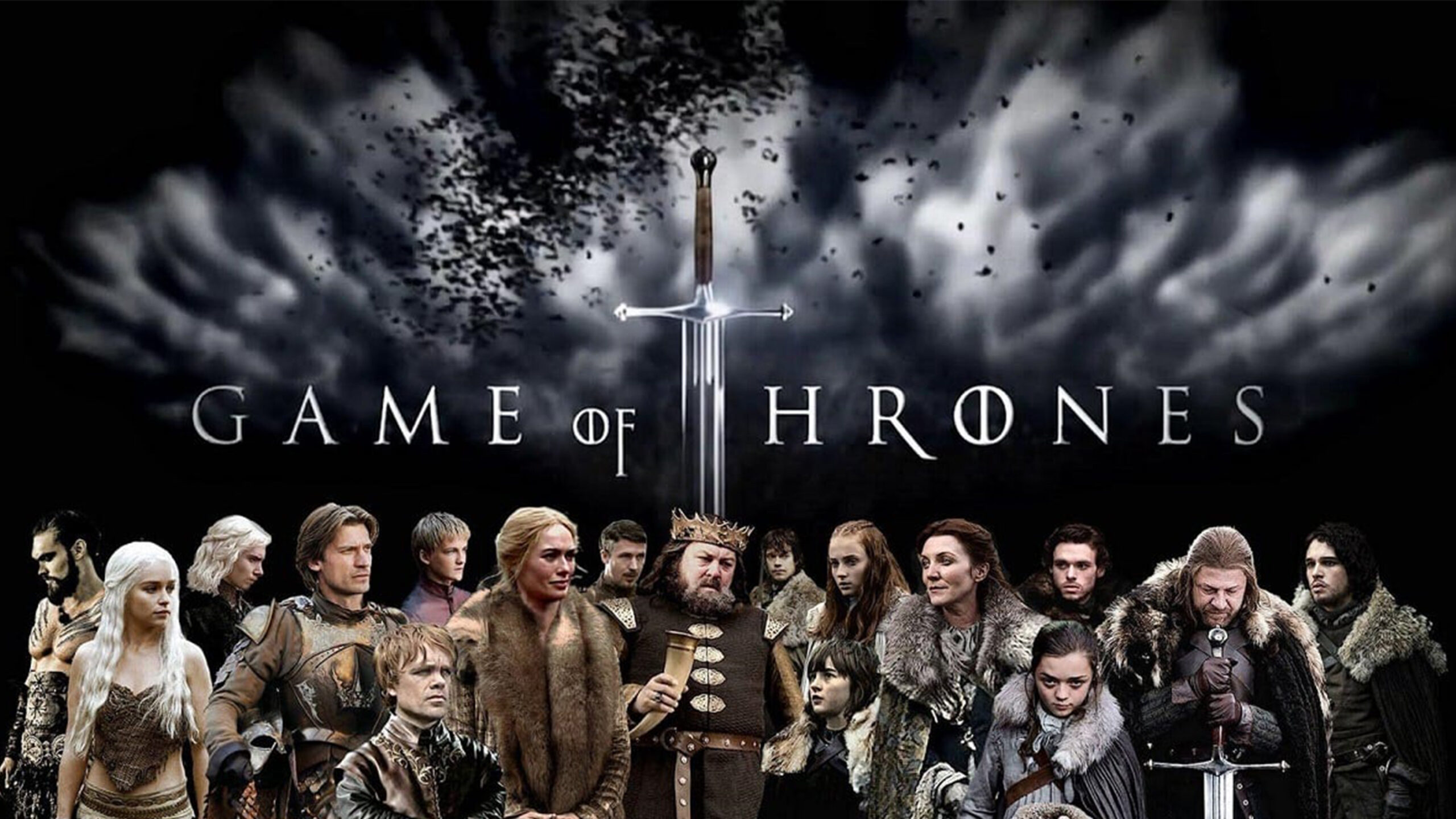Game of Thrones is an American fantasy drama television series created by David Benioff and D. B. Weiss for HBO. It is an adaptation of A Song of Ice and Fire, a series of fantasy novels by George R. R. Martin, the first of which is A Game of Thrones. The show premiered on HBO in the United States on April 17, 2011, and concluded on May 19, 2019, with 73 episodes broadcast over eight seasons.
Set on the fictional continents of Westeros and Essos, Game of Thrones has a large ensemble cast and follows several story arcs throughout the course of the show. The first major arc concerns the Iron Throne of the Seven Kingdoms of Westeros through a web of political conflicts among the noble families either vying to claim the throne or fighting for independence from whoever sits on it. The second major arc focuses on the last descendant of the realm’s deposed ruling dynasty, who has been exiled to Essos and is plotting to return and reclaim the throne. The third follows the Night’s Watch, a military order defending the realm against threats from beyond the Seven Kingdoms’ northern border.

Game of Thrones attracted a record viewership on HBO and has a broad, active, and international fan base. Many critics and publications have named the show one of the greatest television series of all time. Critics have praised the series for its acting, complex characters, story, scope, and production values, although its frequent use of nudity and violence (including sexual violence) generated controversy. The final season received significant criticism for its reduced length and creative decisions, with many considering it a disappointing conclusion. The series received 59 Primetime Emmy Awards, the most by a drama series, including Outstanding Drama Series in 2015, 2016, 2018 and 2019. Its other awards and nominations include three Hugo Awards for Best Dramatic Presentation, a Peabody Award, and five nominations for the Golden Globe Award for Best Television Series – Drama.

When Game of Thrones premiered in 2011, few knew just how massive the series would become. Adapted from George R.R. Martin’s A Song of Ice and Fire novels, the show quickly captivated audiences with its gritty realism, political intrigue, and the willingness to kill off major characters without warning. It wasn’t just a fantasy show—it was a cultural event.
The Rise of a Phenomenon
Early seasons of Game of Thrones stood out for their complex storytelling, morally gray characters, and deeply layered world-building. Unlike traditional fantasy, the show was unafraid to explore the darker sides of power, loyalty, and ambition. Characters like Tyrion Lannister, Arya Stark, and Daenerys Targaryen became household names, while shocking moments like the Red Wedding and Ned Stark’s execution redefined what television could get away with.
The production quality, especially by Season 4 and onward, was cinematic—massive battle scenes, breathtaking locations, and a haunting original score made GoT feel larger than life.
The Highs and the Turning Point
At its peak, Game of Thrones felt unstoppable. It earned countless Emmys, fueled online theories and debates, and inspired everything from merchandise to university courses. But as the show began to move beyond Martin’s published material, cracks started to show.
Many fans point to Seasons 7 and 8 as a turning point—where character development began to feel rushed and plotlines were wrapped up too quickly. The final season, in particular, sparked major controversy. While the production value was undeniably stunning, many felt the writing didn’t live up to the complex groundwork laid in earlier seasons.
The Legacy and the Conversation That Continues
Love or hate the way it ended, there’s no denying that Game of Thrones left a permanent mark on television history. It proved that high fantasy could be mainstream, that serialized storytelling could be both critically acclaimed and globally popular, and that fans would show up week after week if the stakes were high enough.
Even now, years after the finale, GoT remains a hot topic of debate. From the rise of House Targaryen in House of the Dragon to continued speculation about Martin’s future books, the story isn’t over—it’s just evolving.
Final Thoughts
Game of Thrones was bold, brilliant, messy, and unforgettable. It raised the bar for TV, even if it didn’t stick the landing for everyone. But maybe that’s part of what makes it great: it got people talking, feeling, and obsessing—and few shows can say the same.
What were your favorite moments? Do you think the ending could have been saved? Let’s talk about it in the comments.

